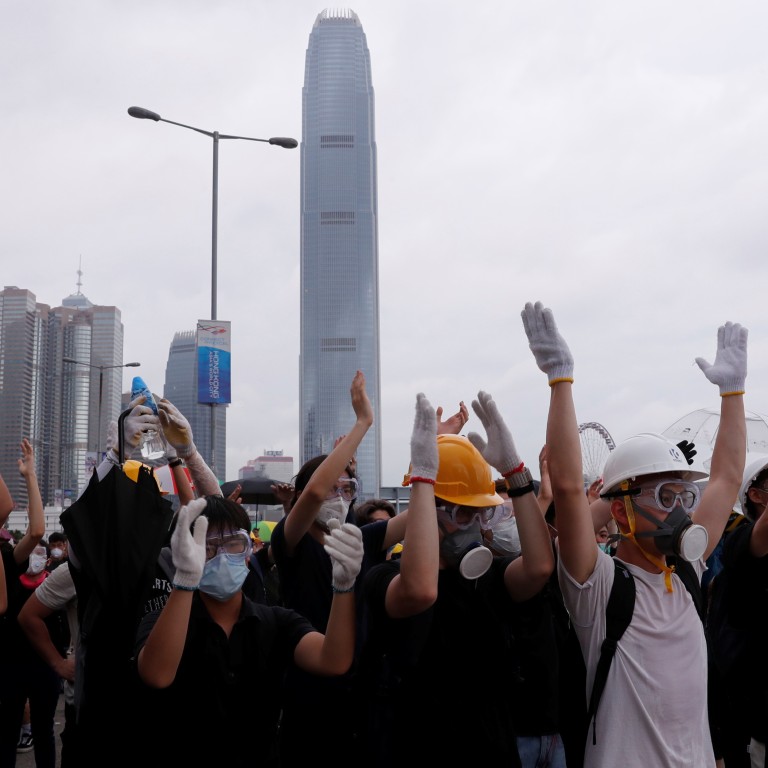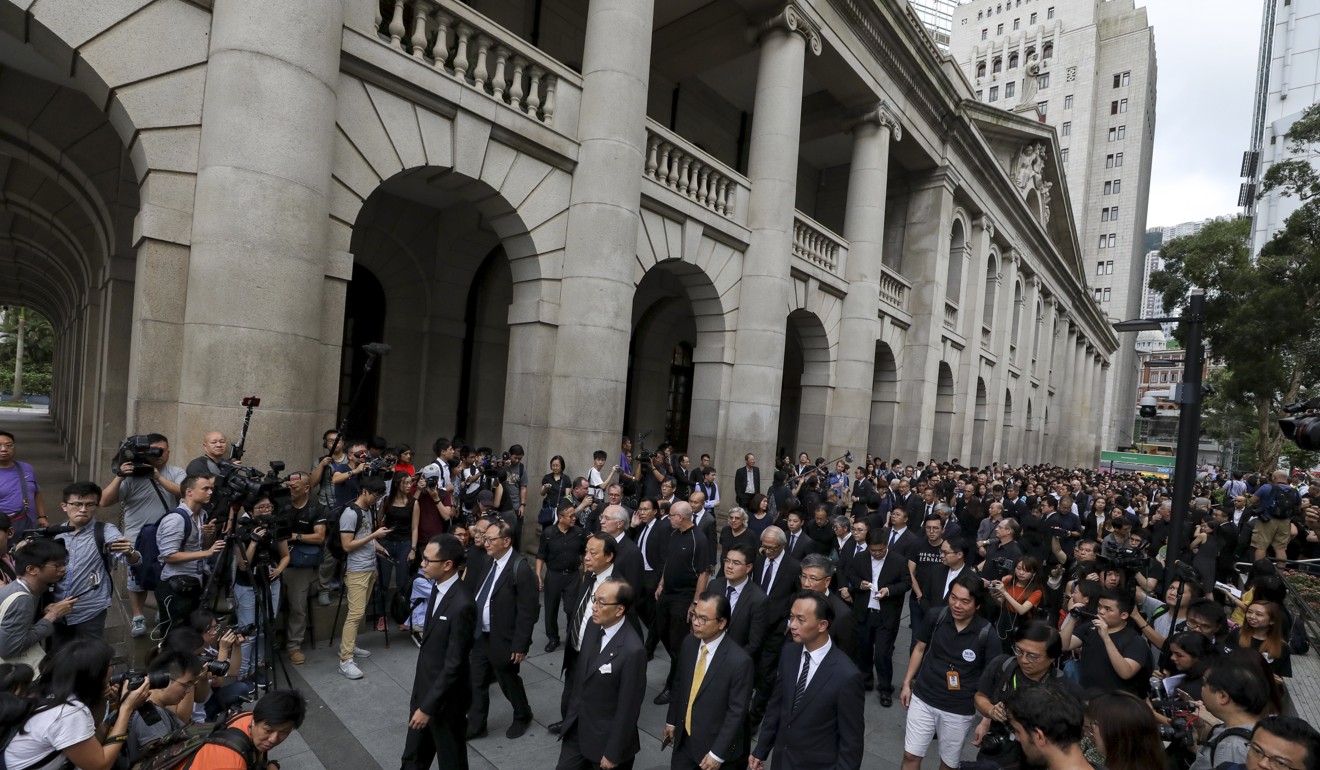
Hong Kong extradition bill should be dropped because of ‘serious risk of human rights violations’ in mainland China, say foreign lawyers
- British lawyer leads profession’s overseas calls for city to shelve fugitive proposals as he accuses officials of wrongly citing UK system to justify changes
- Another top legal mind counters, saying concerns are exaggerated and mainland China’s is much improved
A group of prominent foreign lawyers has joined Hong Kong counterparts in calling for the city to immediately withdraw its controversial extradition bill because it poses a “serious risk of human rights violations” in mainland China.
Mark Summers QC, a British extradition expert and member of the Bar Human Rights Committee of England and Wales (BHRC), also said on Tuesday that Hong Kong officials had wrongly cited Canadian and British laws to justify the proposed amendment.
Thousands of lawyers, including some of the city’s top legal experts, joined a silent march on June 6 to denounce what they considered to be the government’s rushing of the bill.
Officials defended the legislation, pointing to similar one-off extradition models in Britain, Canada, and New Zealand. Proponents of the bill said it provides binding human rights guarantees like an open trial, without spelling it out in the legislation to remain flexible.
Speaking at a conference organised by the University of Hong Kong’s Faculty of Law on Tuesday, Summers said Hong Kong’s extradition system and its bill were only “remotely comparable” to the systems in Britain and Canada.
Britain has used its one-off extradition model only twice. Britain’s Extradition Act, according to Summers, expressly empowers the court to either examine if the charge was out of time, or if the requesting place could provide a fair trial to the wanted suspect. It could also choose to adjudicate the case domestically instead, he said.
“Even leaving aside the broader rule of law implications of the proposals, Hong Kong’s current extradition is not nearly robust enough to carry the burden of ad hoc tradition,” he said.
Issuing a joint statement at the forum, Schona Jolly QC, chair of the BHRC, also joined Helena Kennedy QC, director of the London-based International Bar Association Human Rights Institute, in saying the government’s proposal is likely to create “real and serious risk” of human rights being violated if rendition is opened up to mainland China.
“[Extradition] is a complex issue which cannot afford the luxury of complacency or error,” they wrote.

On Tuesday, New Zealand’s Court of Appeal quashed an extradition request from mainland China for a Korean man, saying it would not hand over a suspect who could be “at substantial risk of torture or where they will not receive a fair trial”.
Hong Kong leader presses on with extradition bill, with a few changes
Philip Dykes, chairman of the Hong Kong Bar Association, and legal scholar Johannes Chan Man-mun pointed that Hong Kong courts do not have the same powers as New Zealand courts, under the law or for political reasons.
“The mainland has its own understanding of the rule of law,” Dykes said. “Individual cases may be given tailor-made assurances, but I cannot say they will get a fair trial [there].”

But Grenville Cross, a former top prosecutor, dismissed those concerns and said the mainland’s legal system has been much improved in recent years. He said for Spain and France, both signatories to the European Convention on Human Rights – like Britain – had allowed extraditions to mainland China.
“The reason they are sending people to China [is] they must have been satisfied about the guarantees by Beijing,” Cross said.

